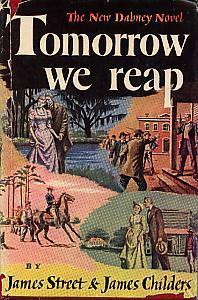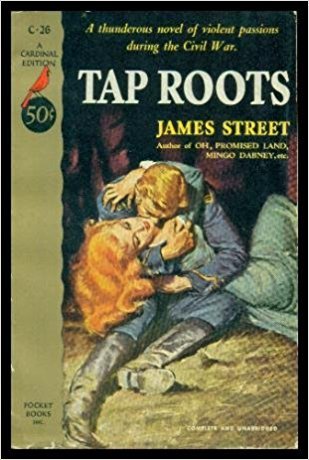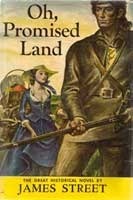
Part of Series
Dabney Family Saga, Vol 4 Thirty years after the Civil War, unscrupulous Northern industrialists cast their greedy eyes on the abundant resources of the South and attempted to reap the profits while sealing off the poor and forgotten in a corner room of a house still divided. In Tomorrow We Reap, authors Street and Childers dust away the cobwebs from this little known period of Southern history and superbly interweave the continuing saga of the Dabney family with the encroachment of Yankee industrial giants. Unlike past conflicts, however, it isn't guns and cannons that threaten the Valley of Lebanon, but sugar-coated half-truths and plump bags of gold. In the 1890s, descendants of Sam'l Dabney are still respected and prominent figures in Lebanon, Mississippi and life has been peaceful and mostly untroubled since the family's attempt to establish an independent republic during the Civil War. But the arrival of the Peninsula Company, a merciless and shady Yankee industry, is about to challenge the Dabney's treasured way of life. It is a battle between honesty and double dealing—price wars, company stores, buying on credit, the lure of silk clothes for those who can't afford it, and a railroad right-of-way not meant to be shared. Although three generations are represented in this story, Tomorrow We Reap is principally the story of the oldest son of Bruce and Kyd Dabney—Big Sans Dabney, a man as steadfast as the rock and trees and sky, yet the son most resistant to change and the one responsible for the direction they all would take. Little by little, members of the Dabney clan realize that they can not always live in their easy, casual way, but can draw strength from the past and the generations of strong and independent men and women who bravely paved the way. A peak at a little known period of U.S. history, impeccable research, characters who leap off the page, romance, and a depiction of the rural South as only the pen of a Southerner can describe it.
Authors

From Wikipedia: James Howell Street (October 15, 1903 – September 28, 1954) was a U.S. journalist, minister, and writer of Southern historical novels. Street was born in Lumberton, Mississippi, in 1903. As a teenager, he began working as a journalist for newspapers in Laurel and Hattiesburg, Mississippi. At the age of 20, Street, born a Roman Catholic, decided to become a Baptist minister, attending Southwestern Baptist Theological Seminary and Howard College. Unsatisfied with his pastoral work after ministering stints in Missouri, Mississippi, and Alabama, Street returned to journalism in 1926. After briefly holding a position with the Pensacola, Florida Journal, Street joined the staff of the Associated Press. The AP position took him to New York, where he began freelance writing fiction. Hired away from the AP by the New York World-Telegram in 1937, Street sold a short story ("A Letter to the Editor") to Cosmopolitan magazine, which caught the eye of film producer David Selznick, who turned it into a hit film, Nothing Sacred. The Broadway musical, Hazel Flagg, was based on his short story, as well as the Dean Martin and Jerry Lewis-film Living It Up. His success allowed him to write full-time, and throughout the 1940s he worked on a five-novel series of historical fiction about the progress of the Dabney family through the 19th century. The Dabney pentology—Oh, Promised Land, Tap Roots, By Valor and Arms, Tomorrow We Reap, and Mingo Dabney—explored classic Southern issues of race and honor, and strongly characterized Street's struggle to reconcile his Southern heritage with his feelings about racial injustice. The series was a critical and popular success, with several of the books being made into feature films. Street modeled characters in his Dabney family saga on Sam Dale, Newt Knight and Greenwood LeFlore. Street also published two popular novels about boys and dogs, The Biscuit Eater and Good-bye, My Lady, both were turned into movies, and a set of semi-autobiographical novels about a Baptist minister, The Gauntlet and The High Calling, both were bought by Hollywood but never produced. Street's short stories and articles appeared regularly in Cosmopolitan, The Saturday Evening Post, Collier's and Holiday. Street died of a heart attack, in Chapel Hill, N.C., on September 28, 1954, at the age of 50.

